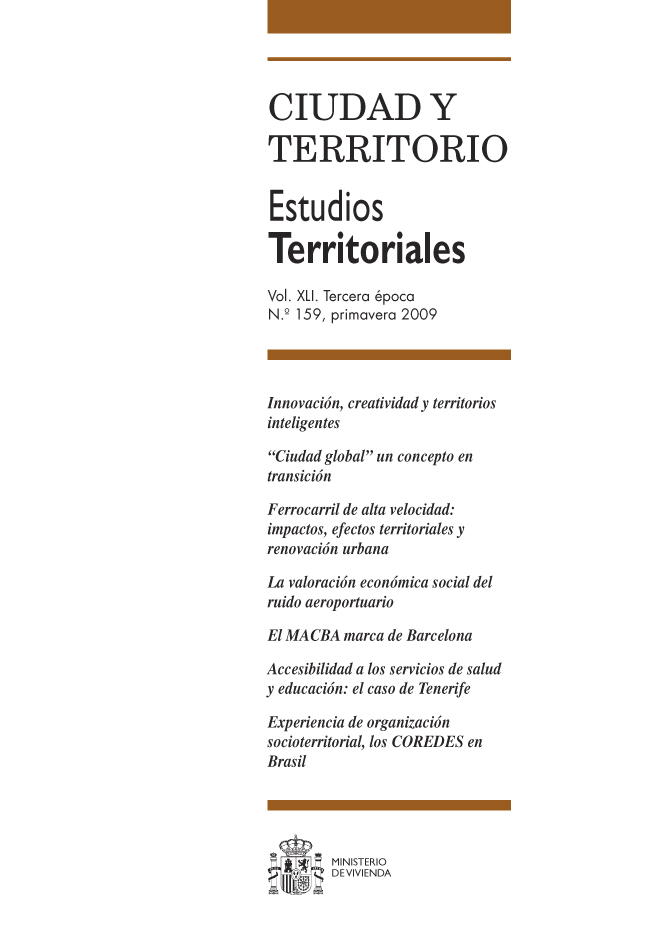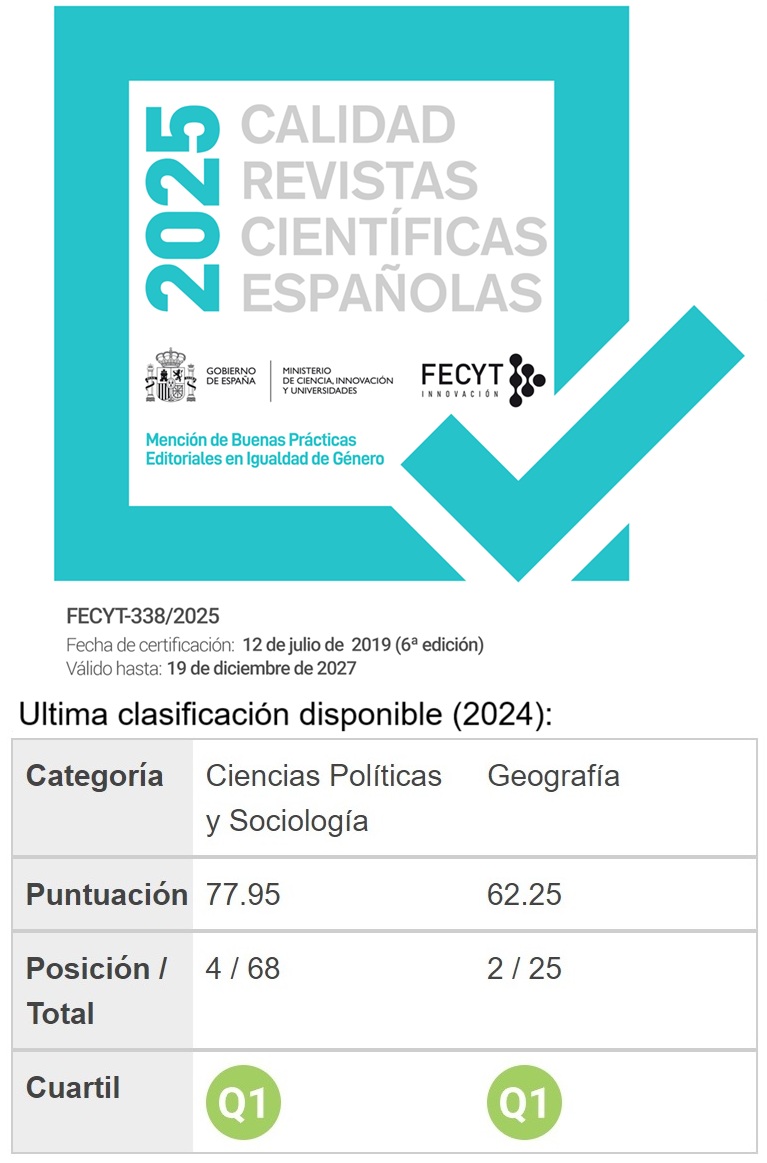Innovación, creatividad y territorios inteligentes
Palabras clave:
Economía urbana, desarrollo territorial, innovación, territorios inteligentesResumen
En la sociedad del conocimiento, la innovación, el conocimiento y la creatividad son la base
de la productividad y competitividad de las empresas pero también de los territorios y, por tanto, la fuerza
motriz del crecimiento económico. El sustento material de esta nueva economía se fundamenta en avances
tecnológicos asociados a las tecnologías de la información y de las comunicaciones que dan soporte a la aplicación
de conocimiento a los procesos de producción, gestión y distribución y que son la fuente principal de
los incrementos de productividad. La capacidad para generar, apropiar y utilizar el conocimiento se considera
hoy el factor clave de la ventaja competitiva de las empresas que se enfrentan al imperativo de la innovación
continua y de la adaptación constante a cambios en las condiciones de la producción y de la demanda. El
conocimiento se convierte así en un elemento estructurador de la nueva economía no sólo como output en
términos de innovación y nueva tecnología sino también como input en el proceso de producción. Este artículo
sitúa la aparición de la sociedad del conocimiento como contexto general de la nueva economía con especial
atención a los rasgos que caracterizan esta sociedad del conocimiento y su ámbito de articulación global-local
así como los componentes de la economía creativa y del conocimiento. En segundo lugar, el artículo introduce
la noción de nuevas territorialidades desarrollando dos de sus manifestaciones dominantes: por una parte,
las regiones inteligentes o regiones que aprenden y, por otro, las ciudades creativas identifi cando los nuevos
factores de competitividad territorial, subrayando la relación entre innovación y territorio y los fundamentos
de la ventaja competitiva territorial. Por último, se presenta un análisis de los nuevos enfoques, políticas,
instrumentos y agentes de la intervención y producción de Territorios Inteligentes y Ciudades Creativas
destacando los aspectos relacionados con las nuevas formas de gestión y gobernanza territorial y su relación
con las estrategias de desarrollo económico.
Descargas
Descargas
Publicado
Cómo citar
Número
Sección
Licencia
Derechos de autor 2009 Arantxa Rodríguez

Esta obra está bajo una licencia internacional Creative Commons Atribución-NoComercial-SinDerivadas 4.0.
Sin perjuicio de lo dispuesto en la legislación vigente sobre Propiedad Intelectual, y conforme a la misma, el/la los/las autor/a/es/as que publiquen en CyTET cede/n a título gratuito, de modo no exclusivo y sin límite temporal al Ministerio de Transportes, Movilidad y Agenda Urbana los derechos para difundir, reproducir, comunicar y distribuir en cualquier formato actual o futuro, en papel o electrónico, la versión original o derivada de su obra bajo licencia de Creative Commons Reconocimiento-NoComercial-SinObraDerivada 4.0 Internacional (CC BY-NC-ND 4.0), así como para incluir o ceder a terceros la inclusión de su contenido en índices, repositorios y bases de datos nacionales e internacionales, con referencia y reconocimiento en todo caso de la autoría del mismo.
Además, al realizar el envío, el/la los/las autor/a/es/as declara/n que se trata de un trabajo original en el que se reconocen las fuentes que han sido utilizadas en su estudio, comprometiéndose a respetar la evidencia científica y a no modificar los datos originales para verificar o refutar una hipótesis de partida; que el contenido esencial del mismo no ha sido publicado previamente ni se publicará en ninguna otra obra o revista mientras esté en proceso de evaluación en la revista CyTET; y que no se ha remitido simultáneamente a otra publicación.
Los autores deben firmar un Formulario de Cesión de Derechos, que les será enviado desde la Secretaría de CyTET una vez se acepte su artículo para ser publicado.
Con el objetivo de favorecer la difusión del conocimiento, CyTET se adhiere al movimiento de revistas de Open Access (OA) y entrega la totalidad de sus contenidos a diversos índices, repositorios y bases de datos nacionales e internacionales bajo este protocolo; por tanto, la remisión de un trabajo para ser publicado en la revista presupone la aceptación explícita por parte del autor/a de este método de distribución.
Se anima a las/os autoras/es a reproducir y alojar sus trabajos publicados en CyTET en repositorios institucionales, páginas web, etc. con la intención de contribuir a la mejora de la transferencia del conocimiento y de la citación de dichos trabajos.








 Enlace a CyTET en Linkedin
Enlace a CyTET en Linkedin